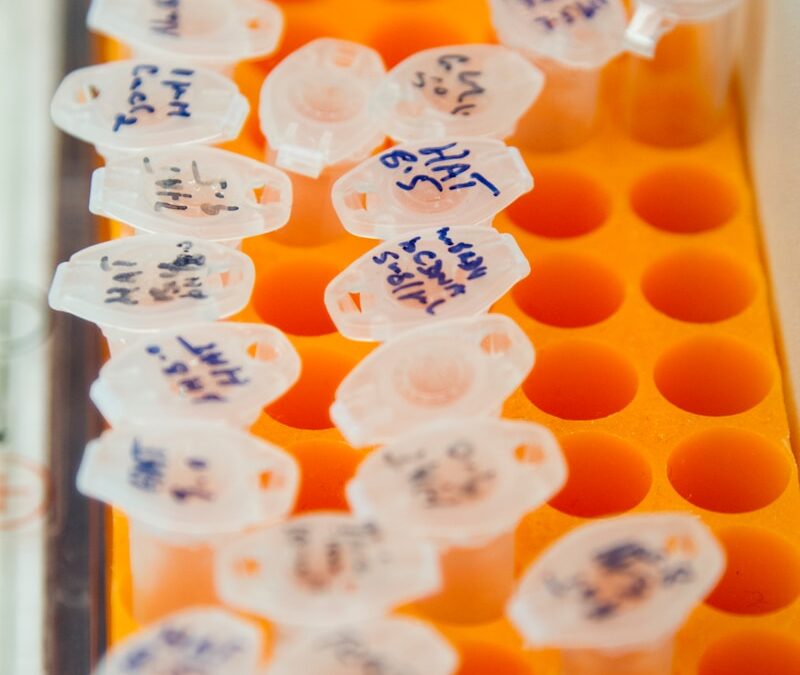The Role of Blockchain in Accelerating Biotech Research and Development
Blockchain Innovations in Switzerland’s Biotech Sector
The adoption of blockchain innovations in Switzerland’s biotech sector has transformed the way companies approach research and product development. As one of the world’s leading hubs for biotechnology, Switzerland is now leveraging blockchain to enhance transparency, security, and collaboration across the industry. Blockchain’s decentralized and immutable nature provides biotech companies with a robust platform for managing data, tracking intellectual property, and securing research findings, ensuring a smoother and more efficient path from research to market.
One of the key benefits blockchain offers to the biotech sector is the ability to create an immutable ledger for clinical trials. This ensures that data collected during trials is secure, tamper-proof, and transparent. By doing so, Swiss biotech firms can reduce the risk of fraud and data manipulation, building trust with stakeholders such as regulators, investors, and patients. Additionally, blockchain enhances collaboration by enabling different research institutions, pharmaceutical companies, and hospitals to securely share data without compromising privacy or intellectual property rights. This is particularly critical in Switzerland, where cross-border collaborations are frequent due to its central location in Europe.
Blockchain is also helping to accelerate research and product development by streamlining the supply chain. In biotech, where precision and safety are paramount, blockchain allows companies to track raw materials, laboratory samples, and pharmaceutical products in real time. This transparency ensures that all components of the research and development process are verifiable and traceable, helping to meet stringent regulatory standards and speeding up time to market.
Accelerating Research with Blockchain in Switzerland’s Biotech Industry
The use of blockchain to accelerate research in Switzerland’s biotech industry is becoming increasingly common. One significant area where blockchain is making an impact is in the management of intellectual property (IP). Research and development in the biotech sector often involve sensitive data, including proprietary research, patent filings, and clinical trial outcomes. Blockchain provides an encrypted and timestamped digital ledger that ensures the authenticity and security of IP, giving biotech companies the confidence to share information across borders and with external partners.
Moreover, blockchain-based smart contracts are playing a vital role in biotech research. These contracts allow for automated agreements between parties, triggered by predefined conditions. For instance, research partnerships between Swiss universities and biotech firms can be governed by smart contracts that automatically release funding when certain milestones are achieved, streamlining the financial aspect of research and allowing scientists to focus on their core work. These innovations are reducing administrative burdens, making it easier for companies to collaborate and expedite the research process.
Blockchain is also transforming patient consent management in clinical trials. Traditionally, managing patient data and consent across multiple trial sites can be a complex and time-consuming process. Blockchain technology, however, provides a transparent and secure way to obtain and track patient consent, ensuring compliance with strict Swiss and international regulations such as the General Data Protection Regulation (GDPR). This efficiency not only protects patient rights but also accelerates the research timeline by eliminating delays caused by consent management issues.
Driving Product Development through Blockchain
In addition to accelerating research, blockchain innovations in Switzerland’s biotech sector are driving faster and more efficient product development. One of the most promising areas is the use of blockchain for managing supply chains in drug manufacturing. The biotech industry relies heavily on complex, multi-stage supply chains, where any breakdown can cause costly delays. Blockchain’s ability to track products in real time, verify their origin, and monitor conditions such as temperature and storage helps biotech firms ensure that products meet regulatory requirements and are delivered on time.
Blockchain also helps biotech companies maintain stringent quality control measures during product development. By recording every step of the development process on an immutable ledger, companies can trace any issues back to their source, whether it’s a faulty batch of raw materials or a deviation in manufacturing procedures. This allows for faster problem resolution and helps ensure that biotech products, including pharmaceuticals and medical devices, maintain the highest standards of quality and safety.
Furthermore, blockchain is fostering greater transparency in the relationship between biotech companies and regulators. By providing regulators with real-time access to development data, blockchain reduces the need for lengthy approval processes. Regulators can monitor compliance with safety standards and review clinical trial data as it becomes available, speeding up the approval of new therapies and accelerating time to market.
The Future of Blockchain in Switzerland’s Biotech Growth
The future of blockchain in Switzerland’s biotech growth looks promising, as more companies embrace its potential to revolutionize the industry. Blockchain technology is expected to play a pivotal role in advancing personalized medicine, where treatments are tailored to individual patients based on their genetic makeup. In this field, blockchain can securely store and manage sensitive patient data, ensuring that treatments are customized while protecting privacy and adhering to regulatory frameworks.
Swiss biotech firms are also exploring blockchain for use in genomic data research. Blockchain’s security features make it ideal for managing vast amounts of genetic information, allowing researchers to access and share data securely. This could lead to breakthroughs in understanding genetic disorders and developing new therapies. Additionally, the combination of blockchain with artificial intelligence (AI) is opening new avenues for innovation in drug discovery and diagnostics, further propelling the Swiss biotech sector forward.
Ultimately, the adoption of blockchain in Switzerland’s biotech sector is driving both growth and innovation. As companies continue to integrate blockchain into their research, product development, and regulatory processes, they will not only enhance efficiency but also establish Switzerland as a global leader in biotech innovation.
—
#Blockchain #BiotechInnovation #SwissBiotech #BlockchainResearch #DrugDevelopment #DigitalTransformation #BlockchainInScience #Switzerland

